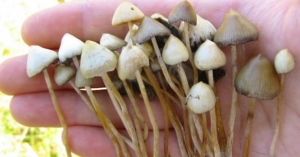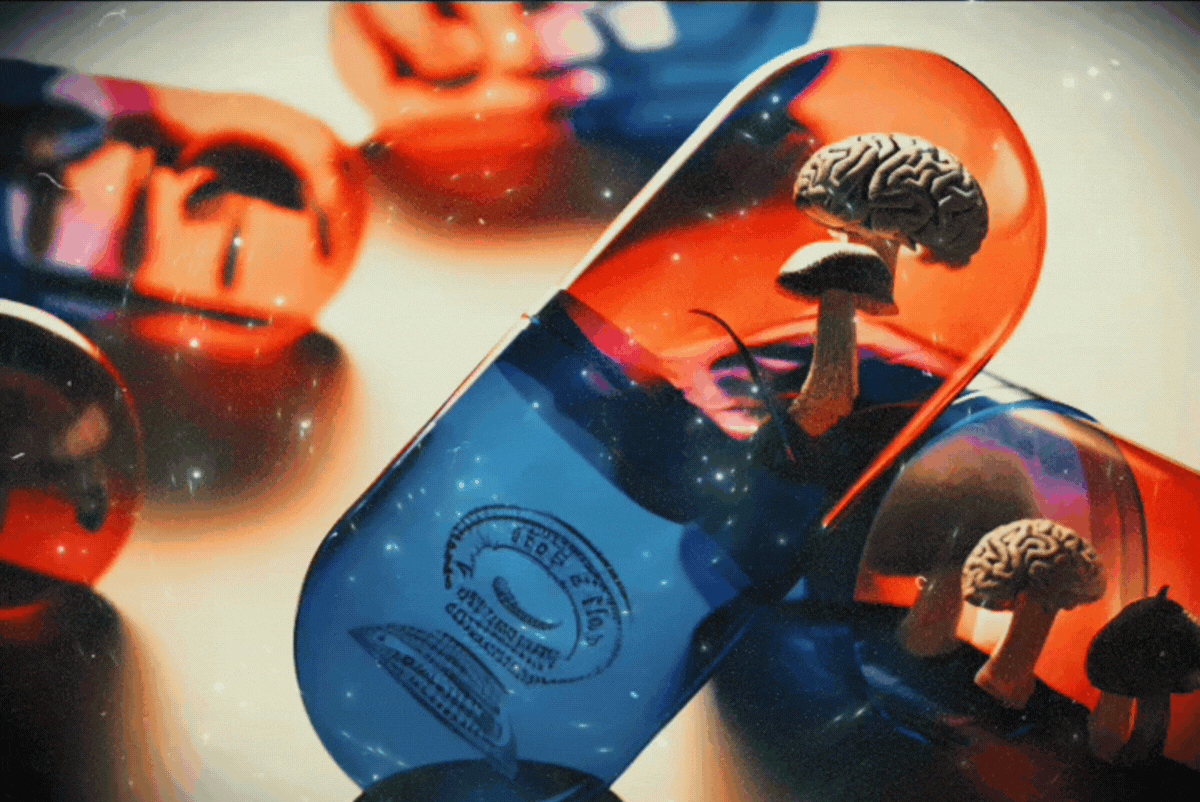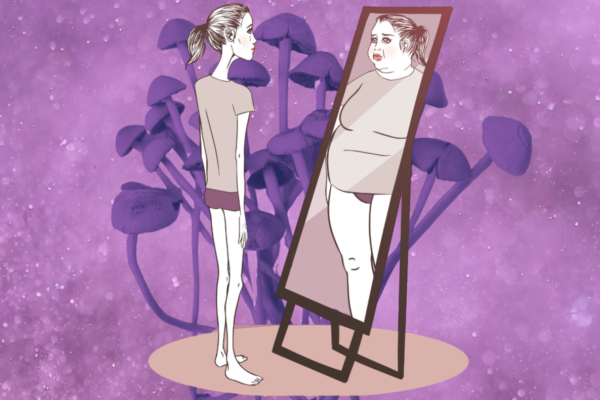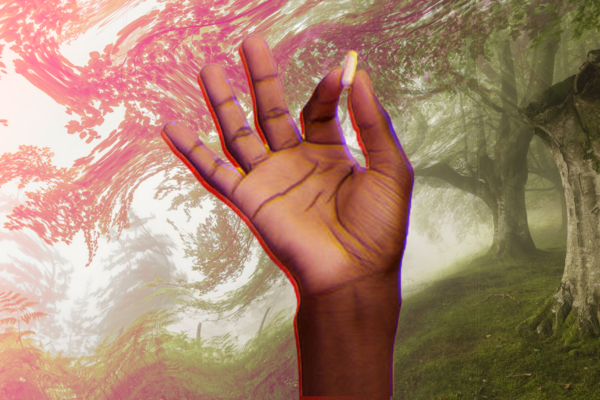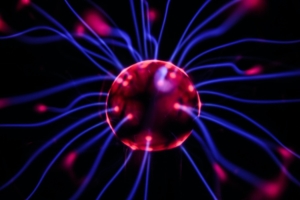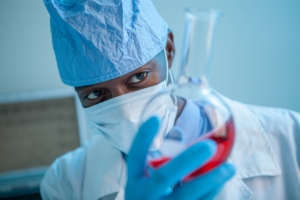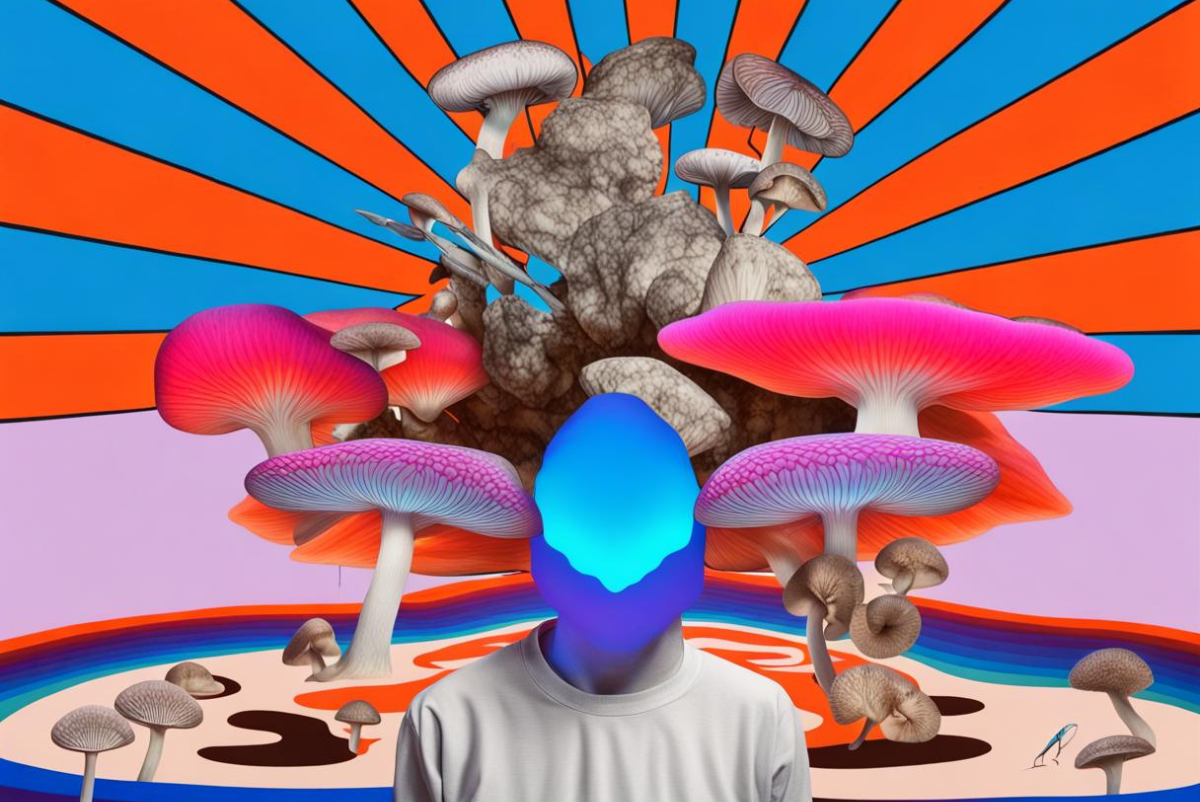
RESEARCH
You Don’t Say! Psilocybin Mushrooms Use Is Associated With Reduced Psychological Distress In Individuals With Adverse Childhood Experiences
In a recent study published in the Journal of Psychoactive Drugs, researchers found a link between psilocybin use and reduced distress in individuals with a history of childhood adversity.
For those who live in the psychedelic bubble and are aware of the abundant research suggesting that magic mushrooms have the potential to conjure relief for people suffering from suicidal ideation, depression and anxiety, the findings may be a bit obvious. However, these results support the idea that an ample amount of mental health conditions are linked to childhood trauma.
The study explored the relationship between psilocybin and psychological distress, focusing on ACEs (adverse childhood experiences), such as abuse, neglect, and exposure to violence. The researchers collected data on the participants’ demographics and psilocybin use history, including the consumption timeframe, dosage levels, and intent behind their psychedelic use. They then instructed the participants to complete two key assessments: The Adverse Childhood Experiences (ACE) Questionnaire evaluating participants’ childhood trauma experiences, such as abuse, neglect, exposure to substance use, and domestic violence, and the Psychological Distress Scale (K6), which assessed the frequency of distressing symptoms, like nervousness, hopelessness, restlessness, depression, and worthlessness, experienced by participants in the past 30 days.
The research findings suggest that recent psilocybin use in the past three months was linked to lower psychological distress levels, particularly benefiting individuals with a history of adverse childhood experiences. Notably, psilocybin users also reported positive opinions on the substance’s benefits and safety, often using it as a tool for self-help in addressing mental health challenges.
Read more here.
Stacking Psychedelic Microdoses with ADHD Medication? New Study Hints “Both And” Could Work
Despite the fact that the practice of microdosing is still challenged by some researchers who claim that the purported benefits are simply due to the placebo effect, many have turned to this method to treat symptoms of ADHD. Now, a recent study exploring real-world psychedelic microdosing for ADHD presents interesting insights that may help reimagine how we treat this disorder.
The microdosing study, published in the Frontiers in Psychiatry Journal, drew data from 233 people using an online prospective naturalistic design. A large proportion of participants were diagnosed with ADHD, while the rest reported severe symptoms. Approximately a third of the subjects took ADHD medication daily, which is known to exacerbate anxiety and stress.
Approximately 78% of participants microdosed psilocybin at a 722 mg average dose. As a side note, the average dose does not fit the agreed-upon microdosing range of between 0.1 and 0.3 grams of psilocybin, and we can only speculate on the factors that may have contributed to such a large difference. Psychedelic Spotlight speculates that interaction with the medication and/or developed tolerance may have played a role. According to the study findings, after four weeks, microdosers with ADHD showed increased mindfulness, enhanced awareness, reduced judging of inner experiences, and lower neuroticism or emotional instability. Notably, participants combining microdosing with conventional ADHD medication showed equal improvements in mindfulness, challenging the perception of pharmaceutical dominance in ADHD management.
All in all, microdosing appears to increase mindfulness while decreasing symptoms of neuroticism and emotional instability in adults with ADHD. Improvements hold true even when people combine microdosing with conventional prescription medications. “Contextualizing the results signals that a ‘both-and’ approach could offer a holistic ADHD protocol that intertwines psychedelic benefits with pharmaceutical reliability.”
Read more here.
POLICY
Californians Have Until Monday To Comment On Revised Psychedelics Ballot Proposal
Californians wishing to provide comments on the revised psychedelic ballot measure which would create a statewide right to procure and use psychedelics for medical, therapeutic and spiritual purposes with a doctor’s recommendation, have until Monday to do so. If enacted, individuals 21 and over would be allowed to possess and use psychedelic substances in their home. Adults will also have the right to cultivate entheogenic plants and fungi on their private property.
The Psychedelic Wellness and Healing Initiative of 2024 was submitted to state officials last month and organizers have until November 27 to gather public comments for submission to the state attorney general. According to Dave Hodges, a lead campaign organizer and the founder of the Church of Ambrosia, in Oakland, there will be five more days to make the final update, wrapping up on December 1.
Read more here.
Massachusetts Advocates Aim to Substitute Psychedelic Ballot Measure, Expose Voter Manipulation By D.C. PAC
Not all roads lead to Rome… According to Bay Staters for Natural Medicines, canvassers funded by New Approach PAC, supporting a psilocybin ballot question campaign in Massachusetts, have been misguiding voters. Bay Staters have video documentation of canvassers lying to voters in an effort to get them to sign the petition. In the footage, paid canvassers can be seen making multiple misrepresentations, including claims that they are unpaid volunteers, that the law only applies to medical use, that costs will be covered by insurance, and that the ballot measure is the only way to legalize psychedelic services. The canvassers were not sure of the name of the organization that had hired them.
Bay Staters for Natural Medicine aims to collaborate with lawmakers for a substitute policy, expressing concerns about potential high costs and the impact on accessibility and affordability.
Read more here.
CULTURE
Gwyneth Paltrow Says Psychedelics “Slay” as Mental Health Treatments
In an interview with People magazine, the actress and founder of Goop, backed the use of psychedelics when it comes to “addressing” mental health conditions. During the “Slay or Nay” game, she praised psilocybin mushrooms, saying “I think that psychedelics are going to absolutely be — and currently are — the next most interesting area in addressing mental health.”
Paltrow’s interest in psychedelics isn’t news. Remember her docuseries “The Goop Lab”? In “The Healing Trip”, which was the first episode of the show, the star and her team jumped on a plane to Jamaica to legally experience the power of medicinal mushrooms. She then proceeds to interview Mark Haden, the former Executive Director of MAPS Canada who is now part of Clearmind Medicine’s Advisory Board, a biotech company investigating MEAI for the treatment of Alcohol Use Disorder. The episode provides some interesting insights into psychedelic research and the substances’ therapeutic potential. Love her or hate her, Paltrow was one of the first celebrities to fearlessly discuss psychedelics as healing agents, attempting to undo the damage induced by a decade-long fearmongering. So what if she also makes vagina-scented candles?
Read full story here.
So… What Really Happened With the Expelled Attendee at the 2023 Wonderland Conference?
In the last couple of years, psychedelic conferences have been “slaying” in terms of the good they’ve done to destigmatize psychedelics by bringing together a growing number of organizations, companies, scientists, entrepreneurs, and advocates. However, these conferences were not without hiccups. In 2022, Microdose excluded certain journalists from their Wonderland event which ignited a Twitter (X) debate and podcast discussions. Then, in June this year, Psychedelic Science 2023, which was hailed as the largest psychedelic conference in history, saw a group of indigenous people loudly interrupting Rick Doblin’s speech, taking over the stage, and asking to be included in the psychedelics discourse. The latest incident happened earlier this month. During this year’s Wonderland Miami Conference, one frustrated attendee got expulsed from the event due to his (at times) aggressive complaints. The incident initiated a LinkedIn back and forth between event organizers and the expelled attendee, revealing broader issues of accountability and effective event management.
In short, Parham Albadvi, the expelled attendee, was frustrated over logistical delays. This led to loud exchanges and tensions between him and the event organizers. After getting expelled, Albadvi posted on LinkedIn that he was “forcefully removed by black bodyguards while a predominantly white audience looked on,” charging conference management with “racial profiling” because of his Middle Eastern descent. He captured the moment he was escorted by security guards out through an entrance of the Ice Palace in a short video clip. In response to these claims, Microdose countered that Albadvi was expelled for violating the event’s code of conduct by being overly aggressive and using offensive language towards a female staff member. Under the post’s thread, a public exchange ensued between Albadvi and Microdose’s senior editor, Jason Najum, who is also of Middle Eastern descent. Najum refuted the claims of racism while Microdose CEO, Connor Haslam, emphasized that the expulsion was based on behavior, not race.
Needless to say, organizing psychedelic conferences seems to be more challenging than other events. Whether this is because most attendees and organizers run on less than three hours of sleep which clearly does not contribute to emotional responses, or because it is extremely difficult to satisfy the demands of such a diverse community, the psychedelics space is not like any other, and more incidents are expected to happen.
Read full story here.
